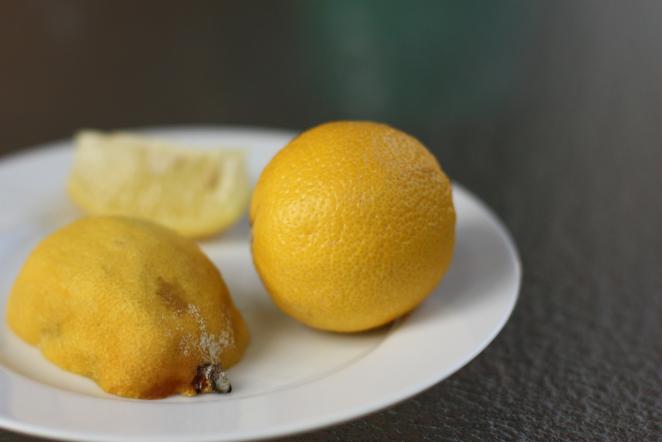We’ve officially arrived at my favorite time to live in Minnesota: Summer! Bicycles fill the streets, farmers markets are vibrant and packed with patrons and our farms and gardens are bursting with the season’s bounty. Food is everywhere and the temptation to buy more food than necessary is always an obstacle for me. Each year I struggle to make good use of all the wonderful food I ether bring home from the market, or grow in my home garden. But this year, I’m inspired to do better.
Recently, I’ve spent a great deal of time exploring what happens to the food our system produces, but that doesn’t end up getting eaten. Think about that tomato you passed up at the market because of a slight blemish. Or the food sitting in your fridge that you bought but never got around to eating. Or the restaurant leftovers that just don’t look as appetizing the second time around. To learn and engage more in this topic, I recently completed a program through Hennepin County to become a Hennepin County Master Recycler/Composter.
According to the program’s website, “Master Recycler/Composters are trained volunteers that work to reduce waste generation and increase public awareness of opportunities to recycle and compost.” Through our studies we encountered countless forms of waste, but we quickly learned that food waste now represents the single largest component of our municipal solid waste that we send to our landfills and incinerators. Obviously I’m not the only one dealing with the issue of food waste.
But what are the impacts of us not eating all of our food?
While it’s clear that each of us puts a great deal of time and energy into sourcing and preparing food for eating, what’s additionally exhausting is that still more energy is needed for properly dealing with the food that doesn’t get eaten. The fact is that a massive amount of the food we produce in this country that is intended for consumption doesn’t even make it into our stomachs – it simply gets wasted. Efforts wasted. Valuable time wasted. Resources wasted. Perfectly good food...wasted!
 Good and bad lemon
Good and bad lemon
According to the Environmental Protection Agency’s 2010 Municipal Solid Waste Fact and Figures Factsheet, of the 34 million tons of food waste generated in the United States in 2010, we were only able to recover and successfully recycle just under 3% of the total food waste generated. Plus, these figures only represent food that is wasted within our distributional food system, not the foods we waste once we get our groceries home, or leave on our plates at restaurants. And, to further complicate matters, not only are we wasting perfectly edible food by not eating it, but, by in large, the means by which we are disposing of this food is putting us at risk.
When food waste is buried in a landfill, it lacks exposure to oxygen, which means it undergoes a process called anaerobic decomposition. A byproduct of anaerobic decomposition is methane gas, which, according to the EPA, is the second most prevalent greenhouse gas emitted in the United States from human activities. The EPA also outlines how greenhouse gases are responsible for global warming, the effects of which science does not yet fully understand, but which we increasingly recognize as a threat to our current way of existence. And while milder winters might be welcomed by some of us, it’s disheartening to know how such a routine human activity such as simply not eating something – or disposing of our food scraps in an improper manner – can have such a profound impact on the acceleration of global warming.
The alternative to anaerobic decomposition is aerobic decomposition. An example of aerobic decomposition is a process called, composting. Composting is nature’s way of recycling organic waste, and a key ingredient in the process of composting is oxygen. Unlike a landfill, a properly-maintained compost pile receives oxygen, either because someone mixes the pile manually or via the mixing that occurs when worms and other microorganisms move about and feed on the organic material within the pile. When conditions are present for successful composting (the correct ratio of oxygen, combined with 1 part green matter, or nitrogen, to 3 parts brown matter, or carbon, and water), the primary byproduct is carbon dioxide. Carbon dioxide is also a greenhouse gas, but, according to the EPA, methane’s impact on climate change is over 20 times greater than carbon dioxide over a 100 year period. Therefore, the EPA says that we are significantly better off composting our excess foods than simply burying them in our landfills.

Compost
In addition to the environmental benefits of composting, the process also yields a secondary byproduct in the form of what is called, finished compost, or humus. Humus refers to any organic matter, which through the process of decomposition, has reached a point of stability where it will break down no further, and also plays a major role in nutrient and moisture retention within our soils. This finished compost is useful for a variety of reasons including for use as a soil amendment, an addition to potting mixes or simply as a mulch. By maintaining the fertility of our soils we ensure ourselves the opportunity to successfully grow more food in the future.
While the argument for playing a more active role in controlling how and where our food waste ends up seems clear, think about a tangential issue we currently face: food shortage. You might not struggle to put food on the table, but the chances are someone in your life is struggling to feed themselves or their families, daily. Limited incomes and resources. Limited access. Limited time. Many of us face problems of food waste while many people are simultaneously in need of food. Little embarrassing, huh? I don’t have a magic bullet up my sleeve to solve that conundrum, but at least I can do the most with what I have and make a conscious effort to limit the food waste that I create. Sound like a worthy challenge?
My time in the restaurant industry has taught me many things, but one I can’t ignore is that food is money. Money you pay the grocer, who pays the distributor, who pays the farmer. When we waste less and demand less, the farmer produces less to meet the reduced demand. When there is less food produced, less food stands the chance of going to waste. Seems simple, right? Well our report card is not looking so good, folks. Perhaps next time I see that tomato with the blemish, I’ll try to respect the other 98% of tomato that looks lovingly delicious.
Here are a few ways you can help to reduce food waste:
- Buy only the food you intend to eat. Source reduction is the most effective means of reducing waste.
- Store your foods properly. Here’s a good website for learning more about food storage.
- Use your best judgement when paying attention to the “Use By” dates on your food. Often these dates are simply “recommended” consumption dates. It may still be perfectly edible!
- If you find yourself with more food than you can eat, bring the extras to work or donate the extra foods to a local food shelf. Most food shelves accept non-perishable AND perishable foods. People love free food!
- Start a compost bin at your home or ask your landlord to consider organic waste recycling at your property and keep your food waste out of the landfill. Also, residents of Hennepin County can dial 311 to request a smaller curbside garbage receptacle and pay a reduced monthly fee. Save the environment and your hard earned money!
- Share the topic of food waste with your friends and relatives! We’re making progress! Help increase the momentum!

Peter Cusic has spent the last 15+ years working in MN restaurants after graduating from St. Olaf College and LCB Culinary School. He strives to enjoy the process of creating food equally to the bites that wind up on his plate. Heʼs travelled the world in search of the tastiest foods and is happy to report that many of them can be found right here in the Twin Cities. He and his family are proud residents of S. Mpls, and when heʼs not in his kitchen, youʼre likely to find him on his bike, strolling the isles of our co-ops and farmers markets, spreading compost in his garden or contemplating the future of farming -- his familyʼs farm has been in the family for over 175 years. He also contributes to his own website, The Humble Palate. His last post for SGT was SGT Book Club Recap: Michael Pollan's 'The Omnivore's Dilemma'.

